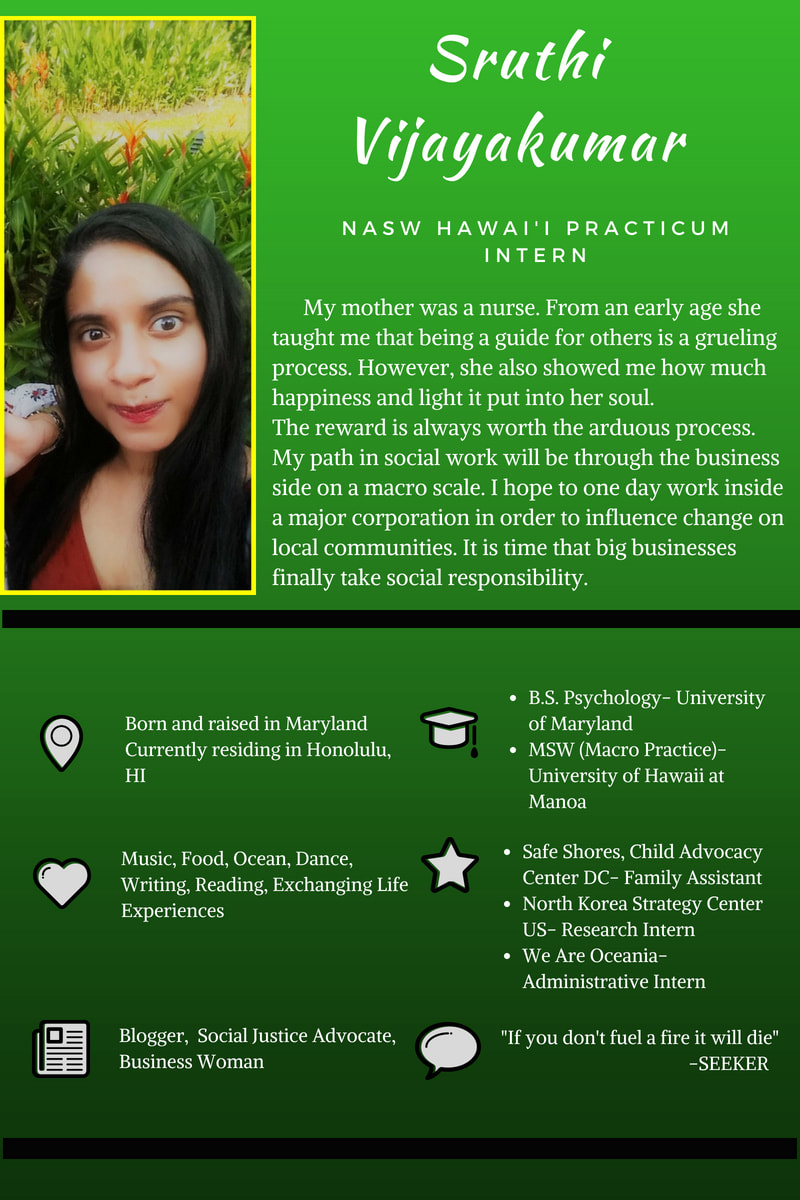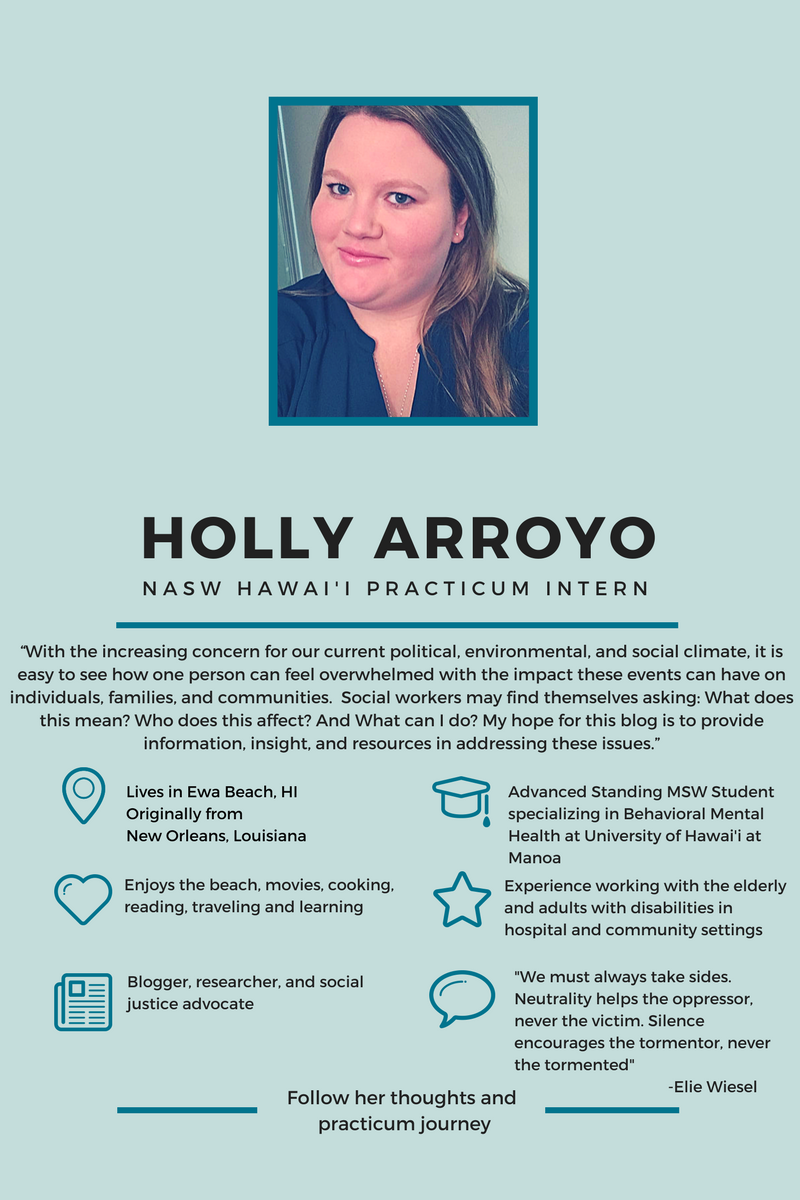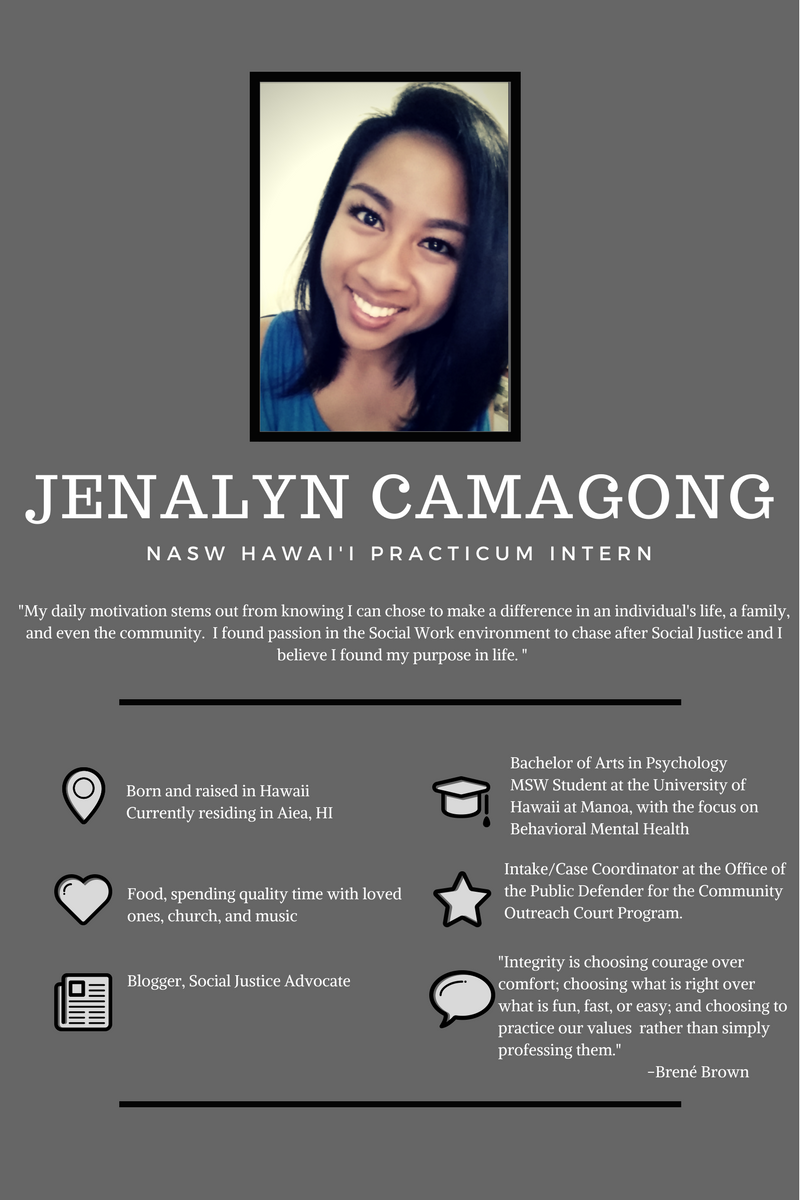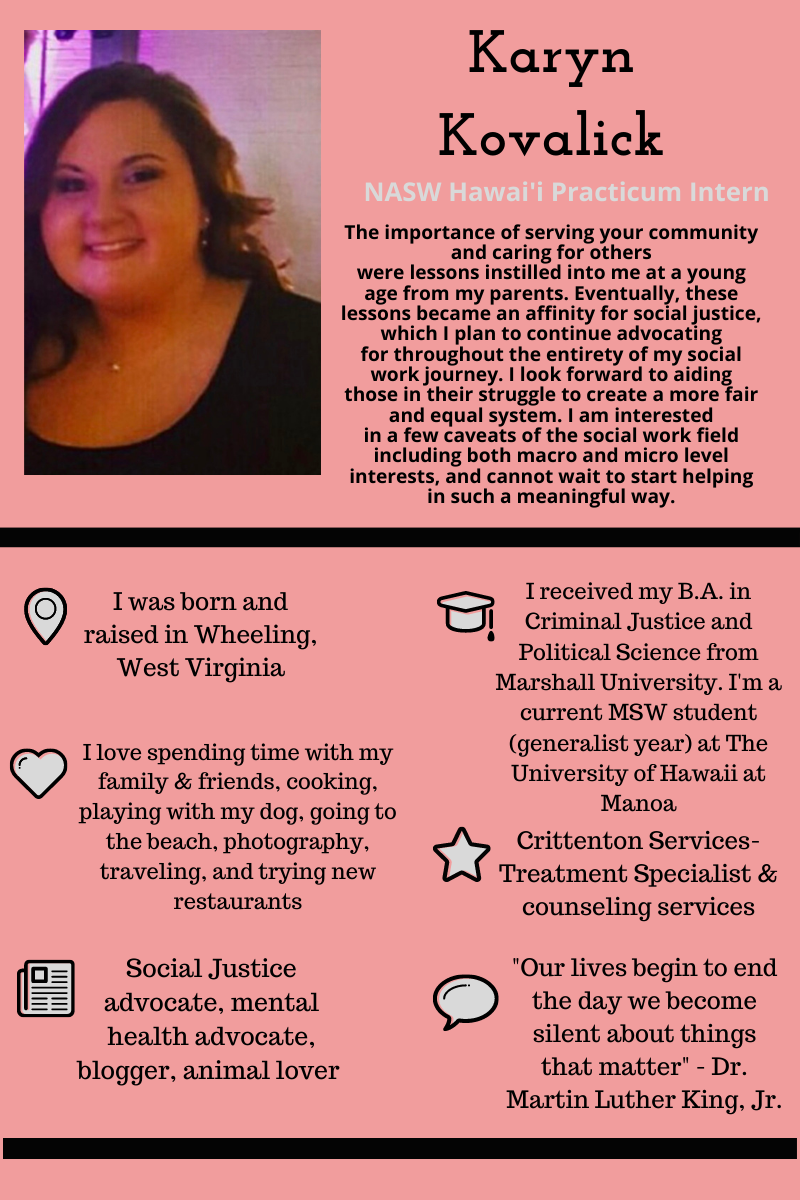|
This week, I felt particularly inspired by Pope Francis's visit to the United States because of his speeches emphasizing the importance of loving and respecting our peers despite seemingly insurmountable differences. In a country that only continues to become more and more polarized, how can we as social workers practice inclusivity and respect towards our colleagues, despite religious, spiritual, or other differences?
In this week's post, I was interested in exploring the intersectionality between spirituality and practice and what that means for us as social workers. I looked this week specifically at the issue of respect among colleagues in the NASW Code of Ethics and how that connects with spirituality and religion. As a Christian myself, sensitive topics have left me feeling ostracized from my faith on one hand and disconnected from the profession on the other. When I first began my journey to become a social worker, someone told me that they thought that being a Christian seemed like an oxymoron if I was entering the field of social work. I felt a wave of ambivalence upon hearing this statement and began questioning if I would have to leave my religion or pick a different career in order to succeed or be respected in the field. I have found that saying that you are a Christian in the field of social work can be daunting. Historically, Christianity has served as both a force of good as well as an indisputable source of oppression and discrimination. (This is applicable to a variety of different religions and is not limited to Christianity in particular, however because I self-identify as a Christian, I have used this religion as an example.) Although social work was partially founded on a religious base, it made a quick shift from a religious establishment to a more scientific one, which resulted in a confusing transition between religion, spirituality and practice. As long as our beliefs do not interfere with our practice, we as providers should be able to live our lives without judgement and should respect our peers' beliefs, regardless of how different those beliefs may be from our own. As time has passed, I have realized that I can be both a Christian and an effective social worker, as long as I am careful to not let my personal beliefs influence my practice. All religions, sexes, ethnicities, sexual orientations or any other factor should be met with tolerance among peers. With hateful and malicious rhetoric becoming increasingly the norm, why have we as a society grown so accustomed to divisiveness as opposed to practicing unfailing inclusiveness? The Pope's message on climate change, economic inequality, a broken prison system and immigration were topics that went against a historically more conservative landscape. The Pope reminded us that we can not and should not meet intolerance with intolerance. As social workers, we are so accepting of our clients' opinions; isn't it time that we acted in the same way towards our colleagues? If you are interested in reading more about religion and social work, please read the article below titled, "Inclusion of Content on Religion and Spirituality in the Social Work Curriculum: A Study of Faculty Views".
0 Comments
|
Author2020 Spring Semester blog posts are written by Jennifer Nacapuy. 2018-2019 Academic Year blog posts are written by Sruthi Vijayakumar & Cynthia Macey. 2017-2018 blog posts were written by Holly Arroyo & Jenalyn Camagong CATEGORIES
All
ARCHIVES
September 2020
|








